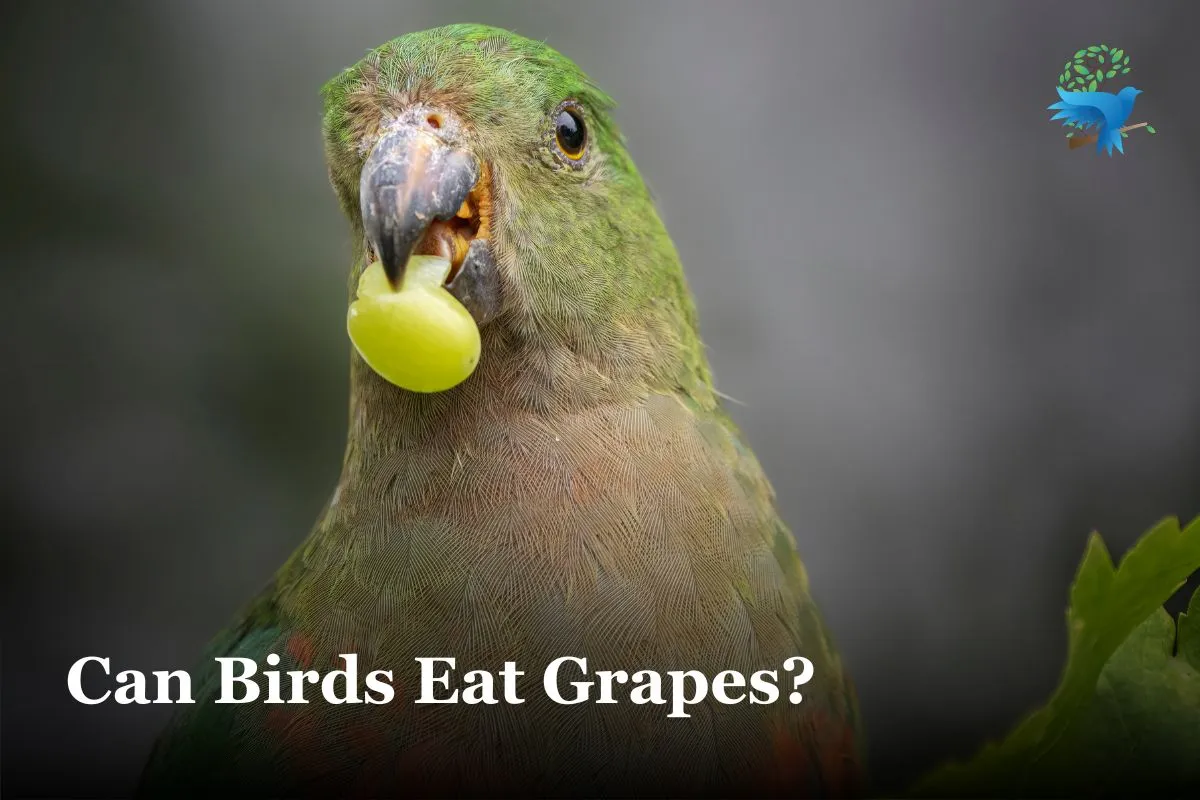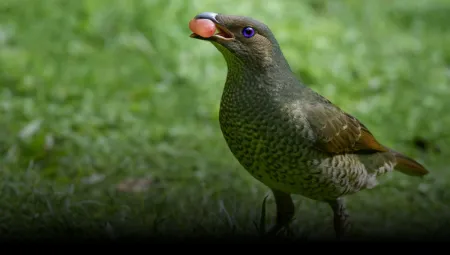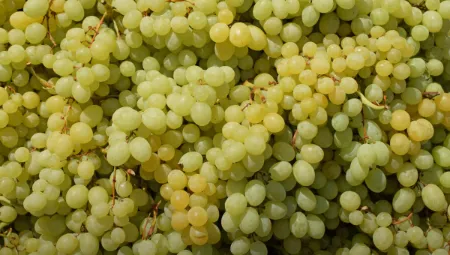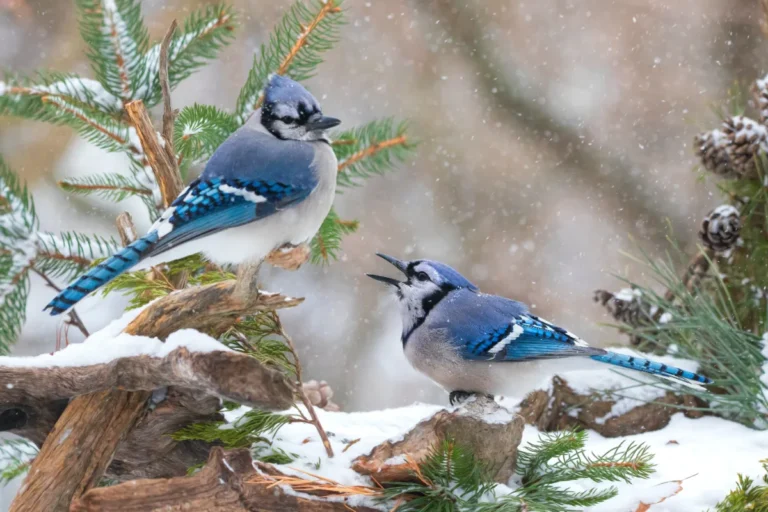Can Birds Eat Grapes? A Guide for Birds Owners

Birds, with their varied diets, make for charming companions. However, as bird enthusiasts or responsible pet owners, it is essential to discern which foods are safe for them. A frequent question among bird owners pertains to the safety of feeding grapes to birds.

This article endeavors to delve into whether birds can consume grapes without harm, shedding light on their nutritional benefits, possible hazards, and optimal feeding practices for our avian companions.
Understanding Birds Diets
Feeding birds with a nutritious diet is vital for their overall health and longevity. Birds have diverse diets that vary greatly depending on their species. A well-rounded bird diet includes seeds, fruits, vegetables, and proteins.
However, it is also important to note that not all foods are safe for birds. Some foods may pose risks to their health, underscoring the importance of informed feeding practices.
Can Birds Eat Grapes?
The topic of feeding grapes to birds is a matter of debate. While certain bird species can safely consume grapes and enjoy their benefits, others may experience serious health problems.
However, it is essential to understand the safety precautions, potential advantages, and risks linked to giving grapes to birds to make knowledge choices.
Nutritional Benefits of Grapes For Birds
Grapes can be a beneficial part of a bird’s diet, offering a range of nutritional advantages:
Vitamins and Minerals
Grapes are a source of essential nutrients such as vitamin A, vitamin C, and vitamin K, along with minerals like copper and potassium that birds require.
The grape skin and seeds are particularly nutrient-dense, providing a higher concentration of vitamins compared to the pulp.
Water Content
Grapes, with their substantial water content, aid in keeping birds hydrated. This is particularly beneficial in arid climates and during warm seasons.
Fiber
The flesh and skins of grapes contain a minor quantity of fiber that assists in the digestion process of birds.
Antioxidants
Grapes are packed with antioxidants. So, Grapes contain antioxidants like resveratrol that may boost immunity and heart health. The antioxidants help to protect the bird cells from damage.
Energy
The high sugar content in grapes provides birds with a valuable energy source, especially during periods of migration or harsh winter conditions.
Read More: Do Birds Eat Wasps? >>>
Safety Considerations
When feeding grapes to birds, there are several safety considerations to keep in mind:
Seedless Grapes: It is important to ensure the grapes are seedless, as they can be a choking risk for birds.

Washing: Grapes should be washed thoroughly to remove any pesticides or chemicals that may be present on the skin.
Moderation: Grapes are sweet and contain fructose at a high level which is the fruit sugar. If birds are overfed with grapes, the birds could become overweight.
Selective Feeding: Because grapes are so tempting and tasty to birds, many will only settle for the juicy fruit when offered alongside their regular food, leading to selective feeding and potential malnutrition.
Birds That Enjoying Eating Grapes
Many bird species safely enjoy grapes, both in the wild and in captivity. Here are some of the bird species that are particularly fond of grapes:
- American Birds: American robins, bluebirds, tanagers, woodpeckers, catbirds, grosbeaks, and Baltimore orioles are known to enjoy grapes.
- UK Birds: In the UK, blackbirds, starlings, thrushes, coal tits, and blue tits show an interest in grapes.
However, some birds are sensitive to grapes acidic compounds, and seeds, or have specialized diets. Avoid grapes for, Chickens, Birds of Prey, waterfowl/Cranes, Hummingbirds, Finches/sparrows, and parrots.
Risk and Hazards
Feeding grapes to birds can pose several risks and hazards:
High Sugar Content: Grapes are high in sugar, which can lead to obesity and other health problems in birds. Excess sugar is not suitable for anyone, including birds. Too much sugar can lead to diabetes, obesity, and other nutrient deficiencies.
Choking Hazard: Chucks of grapes that are too large could potentially block the narrow throats or digestive system of birds.
Pesticides: Grapes cultivated through traditional methods might have residual harmful pesticides. Over a period, these could potentially pose a threat to avian species.
Crop Slowdown: The fibrous outer layer and surplus juice in grapes could potentially decelerate digestion. Certain bird species might find it challenging to metabolize grapes.
Diarrhea: The elevated levels of fluid and sugar in grapes can occasionally lead to loose stools if birds consume them in excess.
Alternatives to Grapes for Birds
Birds love a variety of fruits, and while grapes are a popular choice, many alternatives can provide similar nutritional benefits. Berries, such as strawberries, blueberries, and raspberries, are rich in antioxidants and vitamins.
Melons like watermelon and cantaloupe are hydrating and packed with vitamins. Citrus fruits are high in vitamin C, while apples and pears provide fiber.
Bananas offer potassium and vitamin B6. Cherries, peaches, and plums are also good options. Always remember to wash the fruits thoroughly to remove any pesticides, and feed them in moderation as part of a balanced diet.
Best Practices for Feeding Birds
Responsible bird feeding involves moderation, variety, and observation. Birds should be offered a diverse diet, including seeds, suet, fruit, and nectar, to supplement their natural diet.
New foods should be introduced gradually, and birds responses should be carefully monitored for their well-being. Regular cleaning of feeders and providing fresh water daily is crucial for hygiene.
Feeders should be placed safely away from predators. By following these practices, bird lovers and observers can ensure a healthy and safe feeding environment for birds.
Conclusion
In summary, grapes can serve as a nutritious and delightful snack for various bird species. However, it is crucial to monitor the quantity and consider other aspects when feeding grapes to birds to maintain their health.
By adhering to the recommendations and precautions mentioned in this discussion, bird caretakers can confidently include grapes in their birds diet as a wholesome and pleasurable snack.
FAQ
Can birds eat grapes?
Yes, birds can eat grapes. Grapes are a good source of hydration, nutrition, vitamins, and antioxidants for birds. They also contain calcium, necessary for egg-laying and bone formation.
Can birds eat grapes with seeds?
Grape seeds are not harmful to birds and do not pose any major issue to their health. Although smaller birds may find them impossible to digest. Additionally, the skin of grapes can be safely consumed by birds without any health risks.
What grapes are most nutritious for birds?
Birds can safely enjoy any type of grapes, black, red, or green-skinned. However, they are more likely to choose red and black grapes over the green variety.
What are some guidelines for feeding grapes to birds?
- Portion size and frequency
- Preparation
- Monitoring for adverse reactions
What is a Good Portion Size of Grapes for a Bird?
The suitable portion size for a bird is a small handful of grapes, roughly 2-4, given no more than twice a week and not on consecutive days. For smaller birds, it is advisable to feed them less and cut the grapes into quarters.






